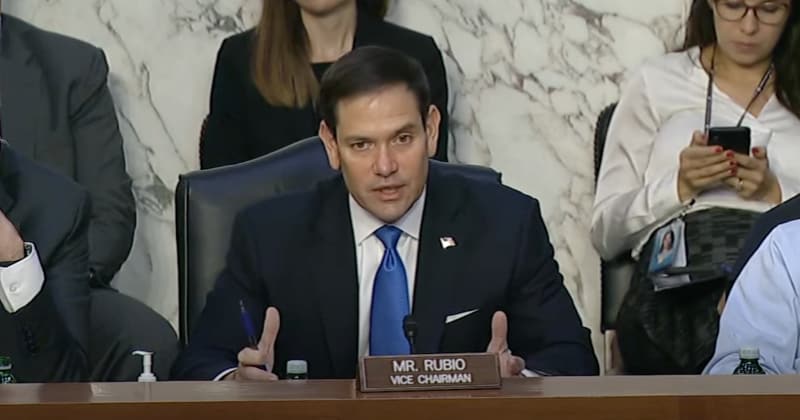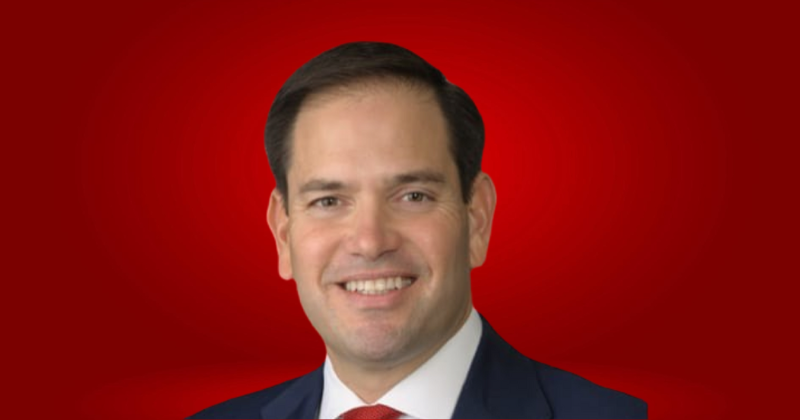At the end of last week, U.S. Sen. Marco Rubio, R-Flaa., sent a letter to the Securities & Exchange Commission Chairman Gary Gensler and the Public Company Accounting Oversight Board’s Chairwoman Erica Williams to get answers on declining auditor independence in China.
“Americans deserve protection from the Chinese Communist Party’s hostile behaviors toward U.S. investors, fiduciaries, and interests. But many of these Chinese and Hong Kong-based companies brazenly disregard the rules required to access American capital markets. Even more egregiously, Beijing has launched a crackdown on the auditors tasked with guaranteeing transparency from Chinese companies in order to maintain that access,” Rubio’s office noted.
“As the CCP continues to systematically tighten its grip over all financial firms under its jurisdiction, I ask the SEC and PCAOB how they can be satisfied with current levels of Chinese and Hong Kong auditor independence, and how this effectively ensures American investors and fiduciaries that these are worthy investments fully compliant with U.S. law,” said Rubio.
The letter is below.
I write to convey deep concern with recent actions by the People’s Republic of China (PRC) as it wages a campaign to “strictly enforce financial discipline” and destroy auditor independence in mainland China and Hong Kong. Specifically, I write in response to growing constraints on the operation of independent public accounting firms in China, including affiliates of the so-called “big four” auditing firms in the PRC. This crackdown has accompanied reported restrictions on access to Chinese databases containing important data about listed Chinese firms. In light of these alarming developments, any reasonable observer might wonder how the Securities and Exchange Commission (SEC) or the Public Company Accounting Oversight Board (PCAOB) could continue to guarantee any level of auditor independence in the PRC.
As you no doubt agree, American investors deserve protection from the Chinese Communist Party’s (CCP) increasingly hostile behavior towards United States fiduciaries, investors, and interests. This includes Chinese and Hong Kong companies publicly listed on U.S. exchanges, which routinely skirt United States regulations and fail to provide a requisite level of transparency to American investors. To combat this growing threat to American national and economic security, Congress passed, and then President Trump signed into law, the Holding Foreign Companies Accountable Act (HFCAA) (P.L. 116-222), which tasked the SEC and PCAOB with auditing and delisting foreign firms out of compliance with United States law.
Per HFCAA, in December 2021, the PCAOB reached a determination that it was unable to inspect or investigate completely Board-registered public accounting firms headquartered in mainland China and in Hong Kong as a result of positions taken by the PRC, initiating a three-year timeline after which China and Hong Kong securities would have been delisted from U.S. exchanges. To avert this outcome, and maintain Chinese access to more than $1 trillion in market capitalization as of last summer, the Biden Administration initiated negotiations with the Chinese Securities Regulatory Commission and subsequently struck an agreement with PRC negotiators in August 2022 to allow PCAOB regulators inspect local accounting firms. This agreement was not only a hastily sought tool to avert Chinese delistings, but also replaces the May 2013 Memorandum of Understanding, in which the PRC and Hong Kong were given a special carveout to avoid compliance with U.S. audit standards under the Sarbanes-Oxley Act.
The PCAOB claimed that it “must have complete access to audit work papers of any firm it chooses to inspect or investigate – no loopholes and no exceptions.” To this end, the PCAOB selected the two, aforementioned affiliates of prominent, British accounting firms: KPMG Huazhen LLP (KPMG) in mainland China and PricewaterhouseCoopers (PwC) in Hong Kong, which have traditionally relied upon Western auditing and data policies. Hardly representative of auditing standards across mainland China and Hong Kong, these “big four” firms have faced attacks by CCP regulators as “lord[ing] themselves arrogantly across China.” Moreover, the on-site inspections and investigations occurred entirely in Hong Kong, seemingly precluding the ability to conduct on-site work in mainland China. At the conclusion of the investigation, the PCAOB announced that the two firms were in compliance with U.S. regulations, saving Chinese and Hong Kong entities from being delisted from U.S. exchanges.
After the investigation, the PCAOB declared its achievement in having “secure[d] complete access to inspect and investigate audit firms in the [PRC] for the first time in history.” Just three months later, in February 2023, Bloomberg reported that Beijing authorities had taken action to pressure Chinese stateowned enterprises, which constitute about a quarter of Chinese gross domestic product, to stop using the “big four” firms, including KPMG and PwC. Beijing’s Ministry of Finance, among others, has pressed Chinese companies to shift instead to indigenous, Chinese and Hong Kong accountants – ones more clearly beholden to Beijing and, as I noted in December, more representative of Chinese accounting standards. Although the CCP claims that offshore subsidiaries can use independent and American auditors, their mainland parent firms have been strongly advised otherwise.
Chinese companies had reportedly already begun the process of changing auditors as the PCAOB was conducting its investigation. In recent months, that trend has only accelerated, with scores of companies listed in Shanghai, Shenzhen, and Hong Kong dropping more independent auditors since December in favor of Chinese and Hong Kong accountants. Less than a week after the Bloomberg article was published, the Financial Times reported that the Chinese affiliate of fellow “big four” member Ernst & Young had begun encouraging staff to wear CCP badges “to show their political loyalty.” Meanwhile, in late March, Chinese regulators told Deloitte it was time to “learn a lesson” – following a $31 million fine and three-month suspension of the firm’s Beijing operations – as the government deepens its crackdown on independent auditors.
While Beijing continues to crack down on auditor independence, reports have begun to emerge from the PRC that access to economic databases with critical information about Chinese companies had been cut off, preventing access to corporate, customs-related, or financial data about Chinese or Hong Kong-based companies. This reportedly includes access to critical company look-up databases used by foreign individuals and institutional fiduciaries, who now may lack access to the basic information needed to perform due diligence on their investments.
As the CCP continues to systematically tighten its grip over all financial firms under its jurisdiction, I ask the SEC and PCAOB how they can be satisfied with current levels of Chinese and Hong Kong auditor independence, and how this effectively ensures American investors and fiduciaries that these are worthy investments fully compliant with U.S. law.
Thank you for your attention to this important matter.













